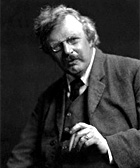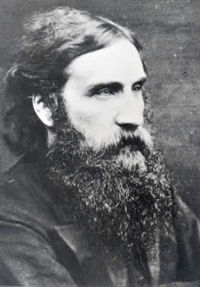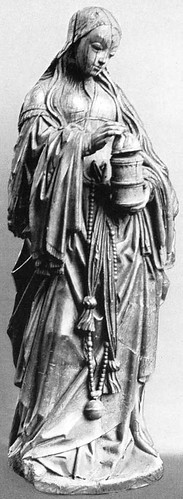This is from a series on Christianity and culture which I developed and taught last summer.
What is culture?
Culture is all around us. It’s the books we read, the type of food we eat and how we produce it, the songs we sing and listen to, the clothes we wear, the entertainment in which we partake, educational institutions, the technology we use, governing systems, the economy, the philosophies we believe, religion and faith, the words we speak, not to mention art and architecture. None of these exist in a vacuum from the other, nor can we exist in a vacuum from culture.
Here are a few definitions of culture:
1. The totality of socially transmitted behaviour patterns, arts, beliefs, institutions, and other products of human work and thought.
2. The act of, or any labor or means employed for, training, disciplining, or refining the moral and intellectual nature of man; as, the culture of the mind.
3. Comes from the word cultivate. (Think of the garden in Genesis 2)
4. James Davison Hunter defines it as; “The power to name reality”. The idea behind this is that when we name something, it defines that something and determines how we think about that something.
Culture is important for it is the nature of our humanity to create and participate in culture because God creates and we are made in His image. It helps shape our thoughts, attractions, morals and behaviours, even as we help to shape it. As Dorothy Day said,
A good society is one that makes it easy to be good.
We can evaluate culture by asking if it corresponds to what is true, good and beautiful and whether it is being made or used to the glory of God or as a substitute for God.
Before we look any closer at culture, lets look at what it means to be human, and why it is important? Let's begin at the beginning.
Genesis 1
1:1 In the beginning, God created the heavens and the earth. 2 The earth was without form and void, and darkness was over the face of the deep. And the Spirit of God was hovering over the face of the waters.
3 And God said, “Let there be light,” and there was light. 4 And God saw that the light was good. And God separated the light from the darkness. 5 God called the light Day, and the darkness he called Night. And there was evening and there was morning, the first day.
6 And God said, “Let there be an expanse in the midst of the waters, and let it separate the waters from the waters.” 7 And God made the expanse and separated the waters that were under the expanse from the waters that were above the expanse. And it was so. 8 And God called the expanse Heaven. And there was evening and there was morning, the second day.
9 And God said, “Let the waters under the heavens be gathered together into one place, and let the dry land appear.” And it was so. 10 God called the dry land Earth, and the waters that were gathered together he called Seas. And God saw that it was good.
11 And God said, “Let the earth sprout vegetation, plants yielding seed, and fruit trees bearing fruit in which is their seed, each according to its kind, on the earth.” And it was so. 12 The earth brought forth vegetation, plants yielding seed according to their own kinds, and trees bearing fruit in which is their seed, each according to its kind. And God saw that it was good. 13 And there was evening and there was morning, the third day.
14 And God said, “Let there be lights in the expanse of the heavens to separate the day from the night. And let them be for signs and for seasons, and for days and years, 15 and let them be lights in the expanse of the heavens to give light upon the earth.” And it was so. 16 And God made the two great lights—the greater light to rule the day and the lesser light to rule the night—and the stars. 17 And God set them in the expanse of the heavens to give light on the earth, 18 to rule over the day and over the night, and to separate the light from the darkness. And God saw that it was good. 19 And there was evening and there was morning, the fourth day.
20 And God said, “Let the waters swarm with swarms of living creatures, and let birds fly above the earth across the expanse of the heavens.” 21 So God created the great sea creatures and every living creature that moves, with which the waters swarm, according to their kinds, and every winged bird according to its kind. And God saw that it was good. 22 And God blessed them, saying, “Be fruitful and multiply and fill the waters in the seas, and let birds multiply on the earth.” 23 And there was evening and there was morning, the fifth day.
24 And God said, “Let the earth bring forth living creatures according to their kinds—livestock and creeping things and beasts of the earth according to their kinds.” And it was so. 25 And God made the beasts of the earth according to their kinds and the livestock according to their kinds, and everything that creeps on the ground according to its kind. And God saw that it was good.
26 Then God said, “Let us make man in our image, after our likeness. And let them have dominion over the fish of the sea and over the birds of the heavens and over the livestock and over all the earth and over every creeping thing that creeps on the earth.”
27 So God created man in his own image,
in the image of God he created him;
male and female he created them.
28 And God blessed them. And God said to them, “Be fruitful and multiply and fill the earth and subdue it and have dominion over the fish of the sea and over the birds of the heavens and over every living thing that moves on the earth.” 29 And God said, “Behold, I have given you every plant yielding seed that is on the face of all the earth, and every tree with seed in its fruit. You shall have them for food. 30 And to every beast of the earth and to every bird of the heavens and to everything that creeps on the earth, everything that has the breath of life, I have given every green plant for food.” And it was so. 31 And God saw everything that he had made, and behold, it was very good. And there was evening and there was morning, the sixth day.
In Genesis 1: 1, 21, 27, the Hebrew word bara is used for create. It means to create something totally new, something which does not flow out of what came before and is only attributable to God. Bara is used three times in reference to man, underscoring his uniqueness.
In Genesis 1:26 we have the first hint of the Trinity. The complete Godhead was involved in the creation of man, adam (male and female).
We are made in the image and likeness of God. Imago Dei. This is what it means to be human.
An image is a material representation, as in a statue or on a coin, or a likeness or similarity, pattern, picture, semblance. Humans are commanded to have no graven images because
we are the icons/eikons. To worship anything else leads us to become less than what we were made to be.
Note also, in Genesis 1:10,18,21and 25, God describes creation as good. In vs 31, after man has been created, God describes His creation as very good.
As Augustine noted, whatever is, must be good. (God is the ultimate being, The Great I Am.) Thus, whatever loses it’s goodness loses it’s being. Whenever we fail to conform to the image of Christ we fail to become fully human. We lose our
I am-ness.
The significance of being made in the image of God is:
1. We are made to be in personal, obedient relationship with God.
2. We are made to be in personal, cooperative relationship with man.
3. We are given moral freedom
4. We have the ability to think, reason, communicate through language
5. We are given dominion over the earth, plants and animals.
6. We are to be fruitful and to recreate.
The consequences of the fall on our humanity are:
1. We are alienated from God, man being inclined toward idolatry.
2. Our relationships with fellow man is strained and inclined toward brokenness.
3. We no longer use our moral freedom rightly being inclined to sin.
4. We lose integrity. Reason, thought, communication are broken.
5. Ineffective dominion, often resorting to domination and misuse.
6. View children as burdens, sometimes less than human.
Adam and Eve turned from God, fearing Him and no longer trusting in His love for them. They then turned their focus and trust on themselves. While still made in the image of God, now we are twisted, distorted and broken. Once created good, we now through the sin of adam, choose death over life, fear over love as explained in the epistle to the Romans.
Romans 1:21-25
21 For although they knew God, they did not honor him as God or give thanks to him, but they became futile in their thinking, and their foolish hearts were darkened. 22 Claiming to be wise, they became fools, 23 and exchanged the glory of the immortal God for images resembling mortal man and birds and animals and creeping things.
24 Therefore God gave them up in the lusts of their hearts to impurity, to the dishonoring of their bodies among themselves, 25 because they exchanged the truth about God for a lie and worshiped and served the creature rather than the Creator, who is blessed forever! Amen.
Here is a passage from,
True Heroism in a World of Celebrity Counterfeits
, by Dick Keyes. It helps to explain the true extent of not living in the image of God.
Sin is not only violating moral rules. It is described by the apostle Paul as falling “short of the glory of God” (Romans 3:23). Note that he does not say falling short of the “law” of God but of the “glory” of God–that is, short of the excellence of God in every area of his existence. It is certainly moral failure, but God’s moral excellence does not exhaust his nature. The seriousness of our sin is that we use our God-imaging capabilities to think, say and do things that oppose, defy and misrepresent God himself. As we misrepresent God’s image, we also misrepresent the selves we were created to be.
In Christ, however, the image is restored. Christ emptied himself, kenosis, to make us like him.
Philippians 2:5-11
5 Have this mind among yourselves, which is yours in Christ Jesus, 6 who, though he was in the form of God, did not count equality with God a thing to be grasped, 7 but made himself nothing, taking the form of a servant, being born in the likeness of men. 8 And being found in human form, he humbled himself by becoming obedient to the point of death, even death on a cross. 9 Therefore God has highly exalted him and bestowed on him the name that is above every name, 10 so that at the name of Jesus every knee should bow, in heaven and on earth and under the earth, 11 and every tongue confess that Jesus Christ is Lord, to the glory of God the Father.
See also, Romans 8:3-4
He is the true image of God.
Colossians 1:15-23
15 He is the image of the invisible God, the firstborn of all creation. 16 For by him all things were created, in heaven and on earth, visible and invisible, whether thrones or dominions or rulers or authorities—all things were created through him and for him. 17 And he is before all things, and in him all things hold together. 18 And he is the head of the body, the church. He is the beginning, the firstborn from the dead, that in everything he might be preeminent. 19 For in him all the fullness of God was pleased to dwell, 20 and through him to reconcile to himself all things, whether on earth or in heaven, making peace by the blood of his cross.
21 And you, who once were alienated and hostile in mind, doing evil deeds, 22 he has now reconciled in his body of flesh by his death, in order to present you holy and blameless and above reproach before him, 23 if indeed you continue in the faith, stable and steadfast, not shifting from the hope of the gospel that you heard, which has been proclaimed in all creation under heaven, and of which I, Paul, became a minister.
See also, II Corinthians 4:3-6
Christ transforms us into his image and restores creation.
Romans 8:12-30
12So then, brothers, we are debtors, not to the flesh, to live according to the flesh. 13For if you live according to the flesh you will die, but if by the Spirit you put to death the deeds of the body, you will live. 14For all who are led by the Spirit of God are sons of God. 15For you did not receive the spirit of slavery to fall back into fear, but you have received the Spirit of adoption as sons, by whom we cry, "Abba! Father!" 16 The Spirit himself bears witness with our spirit that we are children of God, 17and if children, then heirs—heirs of God and fellow heirs with Christ, provided we suffer with him in order that we may also be glorified with him.
18For I consider that the sufferings of this present time are not worth comparing with the glory that is to be revealed to us. 19For the creation waits with eager longing for the revealing of the sons of God. 20For the creation was subjected to futility, not willingly, but because of him who subjected it, in hope 21that the creation itself will be set free from its bondage to corruption and obtain the freedom of the glory of the children of God. 22For we know that the whole creation has been groaning together in the pains of childbirth until now. 23And not only the creation, but we ourselves, who have the firstfruits of the Spirit, groan inwardly as we wait eagerly for adoption as sons, the redemption of our bodies. 24For in this hope we were saved. Now hope that is seen is not hope. For who hopes for what he sees? 25But if we hope for what we do not see, we wait for it with patience. 26Likewise the Spirit helps us in our weakness. For we do not know what to pray for as we ought, but the Spirit himself intercedes for us with groanings too deep for words. 27And he who searches hearts knows what is the mind of the Spirit, because the Spirit intercedes for the saints according to the will of God. 28And we know that for those who love God all things work together for good, for those who are called according to his purpose. 29For those whom he foreknew he also predestined to be conformed to the image of his Son, in order that he might be the firstborn among many brothers. 30And those whom he predestined he also called, and those whom he called he also justified, and those whom he justified he also glorified.
It is in Christ that we become truly human.






























